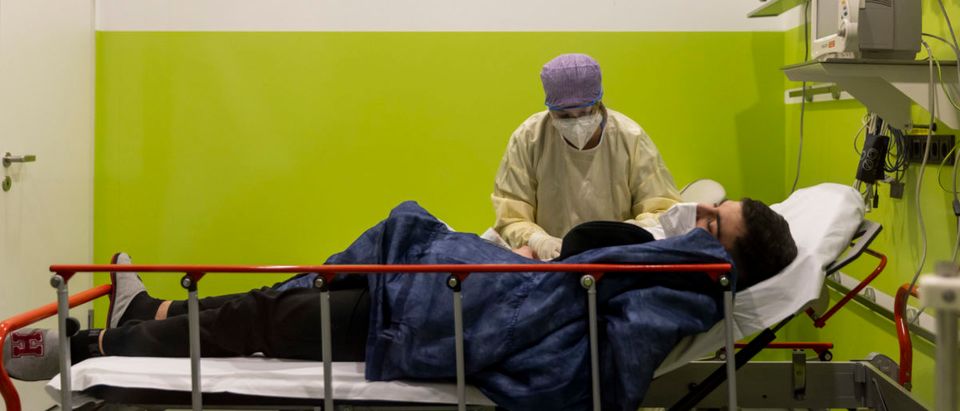A majority of COVID-19 hospitalizations during the South African Omicron variant wave weren’t actually for the virus, a new study has found.
Sixty-three percent of patients hospitalized with COVID-19 in South Africa during the surge had “incidental” COVID-19 diagnoses, meaning they were admitted to the hospital for a separate reason and tested positive for the virus once there. Virtually every metric for hospitalized patients improved when compared to previous waves, from ICU admittance rate to death rate to average length of stay.
OMICRON: Hospitalizations from Omicron compared to previous waves, large study, S. Africa:
-63% of patients hospitalized had incidental COVID (in nose, not there for COVID)
-Of those with COVID, 45% needed oxygen compared to 99.5% previous waveshttps://t.co/aaKsI8QdNY— Monica Gandhi MD, MPH (@MonicaGandhi9) January 3, 2022
ICU admissions fell from 21.3% to 4.5%, and deaths fell from 4.3% to 1%. The average length of stay required for COVID-19 patients was four days, compared to 8.8 days in previous waves. The average age of patients was 10 years younger, at 39 compared to 49. At the peak of the wave, hospital bed occupancy was only 51% of previous waves, researchers found.
Only 45% of those admitted to the hospital needed supplemental oxygen, versus 99.5% during previous waves. (RELATED: Setbacks, Inconsistencies Mount For CDC Under Walenksy)
In the U.S., some number of COVID-19 hospitalizations are incidental as well, although data isn’t available to show the exact proportion. Some doctors have observed an uptick in incidental COVID-19 hospitalizations during the Omicron wave due to the strain’s reduced severity when compared to Delta and Alpha.
Dr. Anthony Fauci said last week that many of the children hospitalized for COVID-19 are there for reasons like broken legs or appendicitis, and they just happen to test positive for the virus upon arrival.


